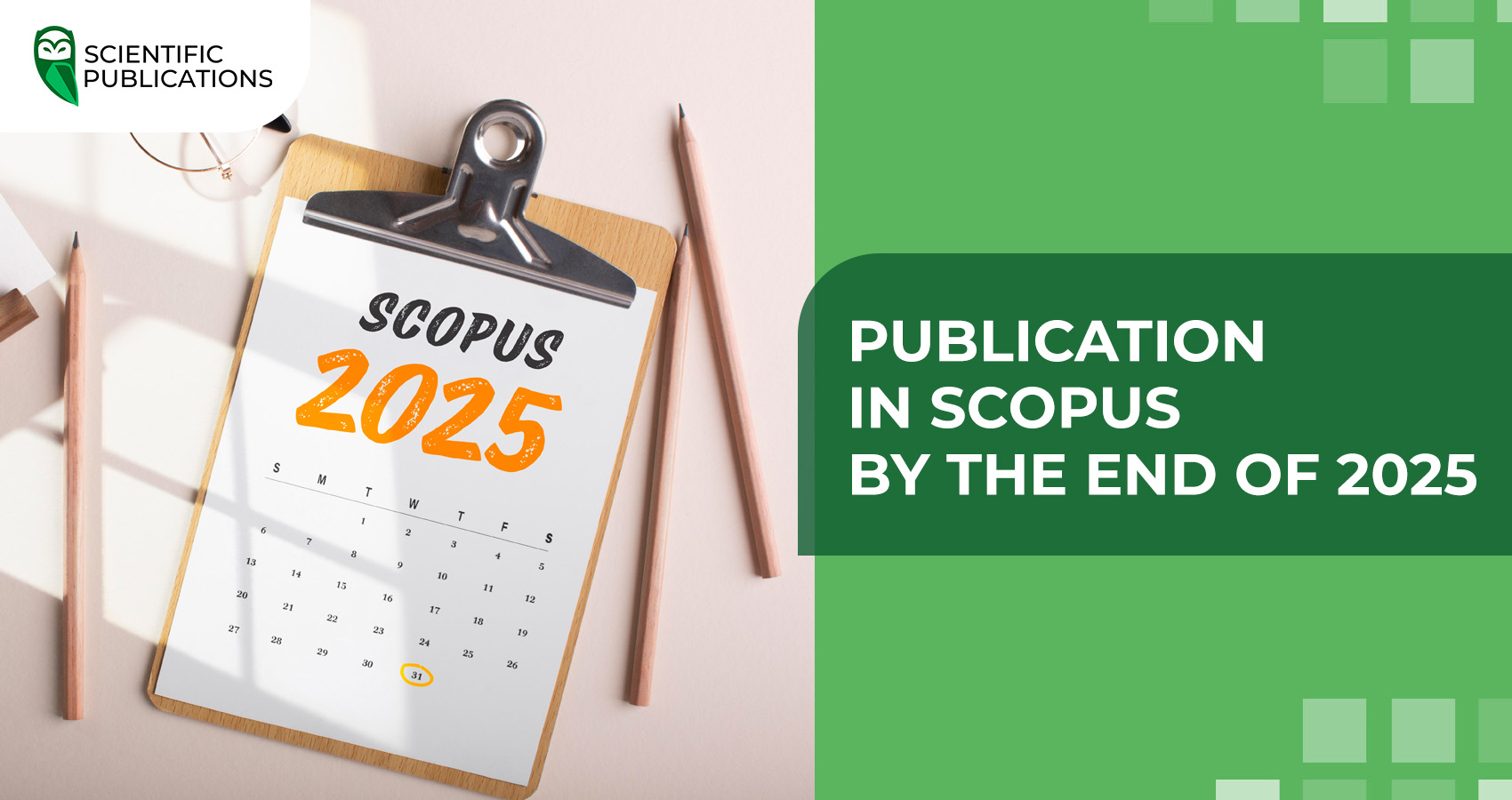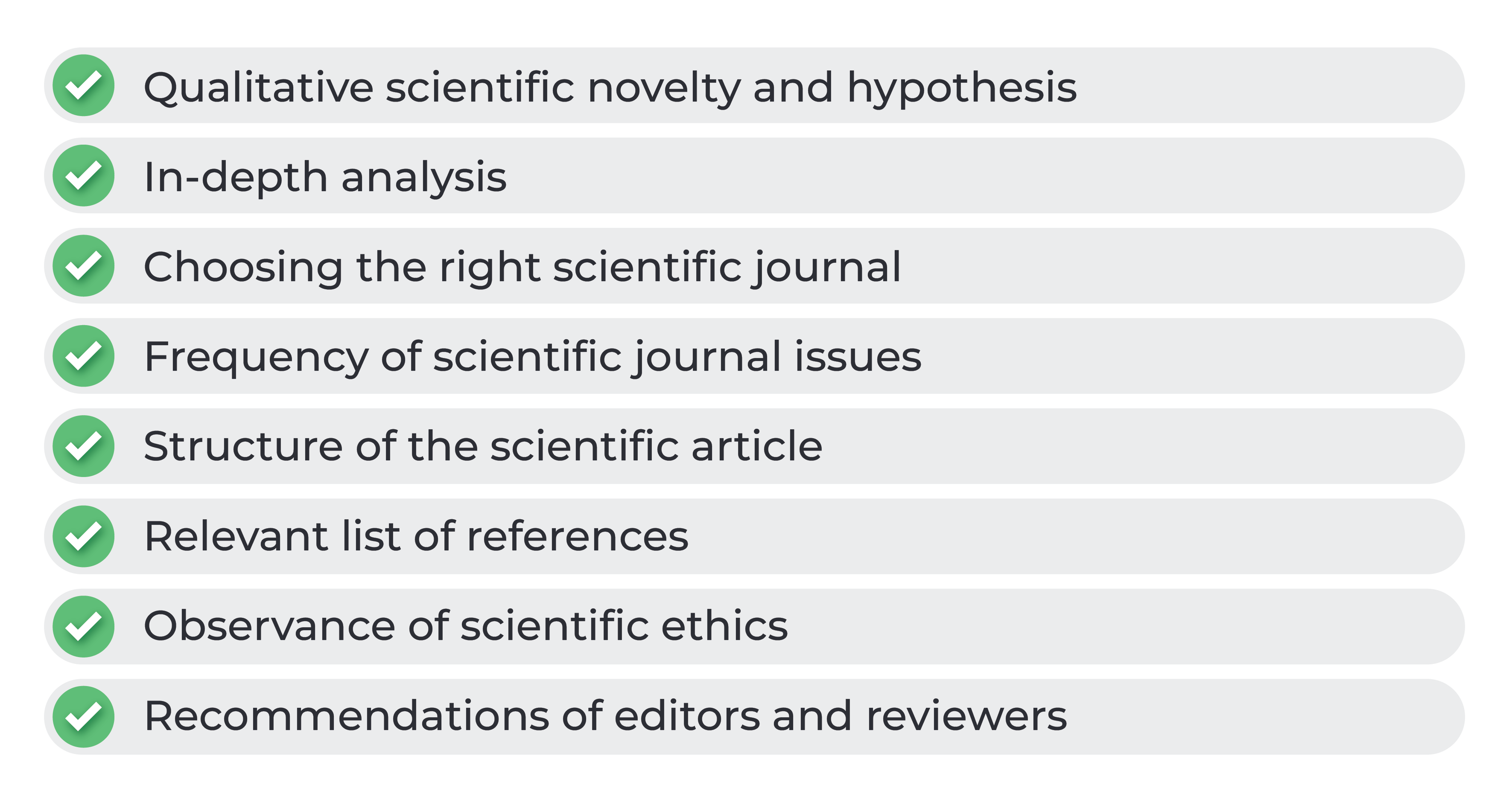Publication in Scopus is a complicated and rather lengthy process that can take several months or more than a year. today we have prepared for you effective tips to help you publish a scientific article in Scopus by the end of 2025.

Requirements for scientific articles to be published in Scopus
Publishing an article in Scopus is not an easy task. The database has strict requirements for the published material that absolutely all journals that have or seek to obtain indexation must adhere to. This applies to the originality and quality of the research, scientific novelty, methodology, etc. Even if your article is written perfectly, this does not guarantee publication. It is important that the subject matter of the article corresponds to the goals, directions, and subject area of the chosen scientific publication.
Strict review process in Scopus
Publications indexed in the Scopus database usually use a double-blind peer review system, in which neither authors nor reviewers have information about each other. This approach helps to eliminate bias and ensure an objective assessment of materials. The review process usually takes several weeks to several months. Due to the limited number of places in each issue, reviewers select only the highest quality research.
How to publish an article in Scopus by the end of the year?

In order to publish an article by the end of the year, the most important thing is to carefully approach the process of preparing and formatting the manuscript.
Qualitative scientific novelty and hypothesis
Each article published in the Scopus database must have an original scientific contribution. It is necessary to form a qualitative scientific novelty and avoid repeating old ideas. Focus on new approaches, results, and conclusions.
A scientific hypothesis should not contradict the main scientific truths and facts and should outline previously unexplored or poorly understood aspects of a particular issue.
At the planning stage, a scientific hypothesis may not be fully formed yet and is more of an assumption. Its final version is formed by a scientist after analytics.
Deep analytics
At this stage, the researcher needs to conduct in-depth analytics to identify under-researched aspects within their subject area, scientific discipline, and area of interest. This analysis allows you to outline the current state of research on the problem, identify research gaps, determine the novelty of your own approach, and formulate a research question that is both relevant and unique.
Analytics helps to navigate current trends in world science, in particular by studying publications in Scopus databases. This contributes to the formation of a high-quality literature review, strengthening the rationale for choosing a topic and methodology, and increasing the chances of successful peer review in a reputable scientific journal.
Choosing the right scientific journal
Choosing a scientific journal is one of the key stages in the process of preparing for publication. Not only the fact of indexing in the Scopus database, but also the scientific visibility of your research depends on how well you choose the publication. The subject matter of the article should exactly match the journal's profile, as well as take into account its target audience, publication style, and formatting requirements.
Journals with high scientific performance usually have stricter requirements for the selection of materials and longer review times, which should be taken into account when planning your publication activities. Priority should be given not only to prestige, but also to relevance, transparency of the review process, and ethical standards. It is also useful to check the journal on the official Scopus website to avoid submitting to fake or predatory journals.
Frequency of issues of a scientific journal
The frequency of a journal's publication directly affects the timeframe for reviewing and publishing an article. If you want to publish your research in a Scopus-indexed journal on time, you should choose journals with frequent issues - quarterly or, even better, monthly. The higher the frequency, the more materials the editorial board can process and publish during the year.
Structure of a scientific article
Before submitting an article for consideration to a scientific journal, be sure to read the requirements for manuscript formatting, which are usually described in detail on the official website of the publication in the relevant section. Compliance with technical and stylistic requirements is an important step that demonstrates your preparedness and respect for the editorial process. A properly formatted manuscript allows editors and reviewers to get acquainted with the material faster, and you to save time at the revision stage.
Most journals indexed in Scopus require the IMRAD structure: Introduction, Methods, Results, and Discussion. This format contributes to a clear presentation of scientific thought and facilitates the perception of information. You can learn more about how to structure an article according to the IMRAD principle in our article.
A relevant list of references
When writing a scientific article, it is important to use relevant sources of information. We recommend choosing literature that has been published in the last 5 years. If possible, give preference to sources from reputable international databases such as Scopus, Web of Science, SpringerLink, ScienceDirect, etc. This increases the credibility of your research and demonstrates the author's awareness of the current state of science.
Important! Do not overuse self-citation in your research. Excessive self-citation can raise suspicion among editors and reviewers about the ethics of the scientific approach. The optimal level of self-citation is no more than 10% of the total number of references. This will help to avoid violations of academic integrity and ensure the objectivity of the presentation of research results.
Adherence to scientific ethics
When conducting research and writing a research paper, adherence to the principles of scientific ethics is not only a manifestation of academic integrity, but also a prerequisite for publication in prestigious journals, including those indexed in Scopus. This includes preventing falsification, fabrication of results, manipulation of data, and double submission of the same article. In case of violations, such actions can have serious consequences: rejection of the publication, withdrawal of the article after publication, and sometimes even temporary or complete suspension from scientific activity.
The uniqueness of the text is another mandatory criterion. Journals, especially those indexed in the Scopus database, check manuscripts using specialised plagiarism detection software. The acceptable level usually does not exceed 10-15%, including cases of self-citation. It is important to understand that even your own previous work cannot be copied without proper citation.
Editorial and reviewer recommendations
Adherence to the recommendations of the editorial board and reviewers is an important condition for the successful completion of the review process and subsequent publication of an article in a journal indexed in Scopus. The comments you receive are usually constructive and aimed at improving the quality of the research, the logic of the presentation of the material, the correctness of references, terminology or structure.
In addition, it is very important to respond promptly to letters from the editorial office. Regularly check your email, including your spam folder, as emails from publishers and editors may automatically end up there. Losing a message or delaying a response can affect the speed of article processing, publication deadlines, or even lead to automatic withdrawal from consideration.
It is not an easy task to publish a scientific article in such a short period of time, it is almost impossible. Not every scientist manages to achieve this goal. However, by following these tips, you increase your chances of timely publication of a scientific article in the Scopus database.
Get a guaranteed publication in Scopus by the end of 2025 – contact Scientific Publications! We will provide the necessary publication in the field you need thanks to our many years of experience. Fill out the form below now and get a free consultation with our manager. Together to a successful publication!





